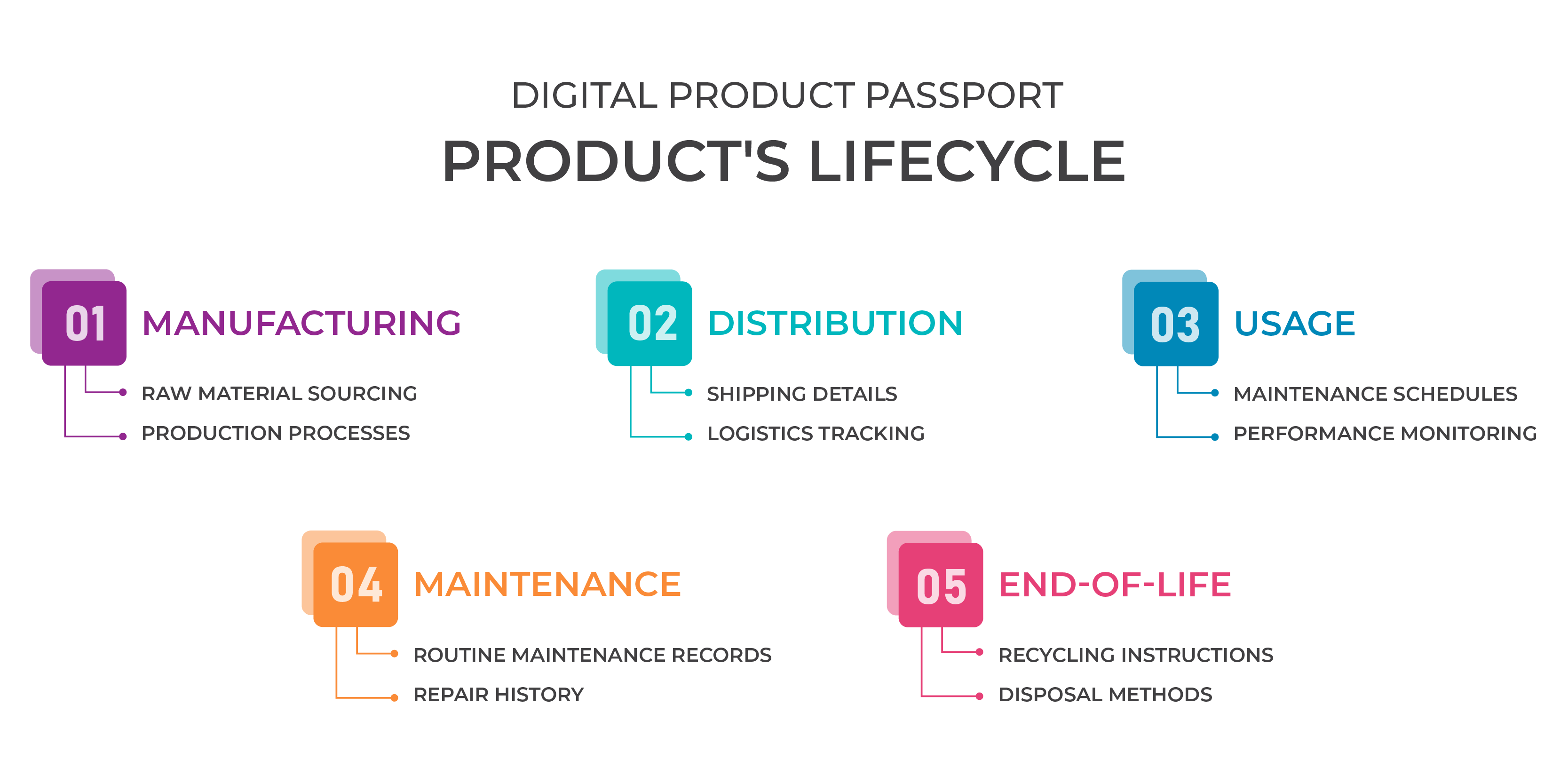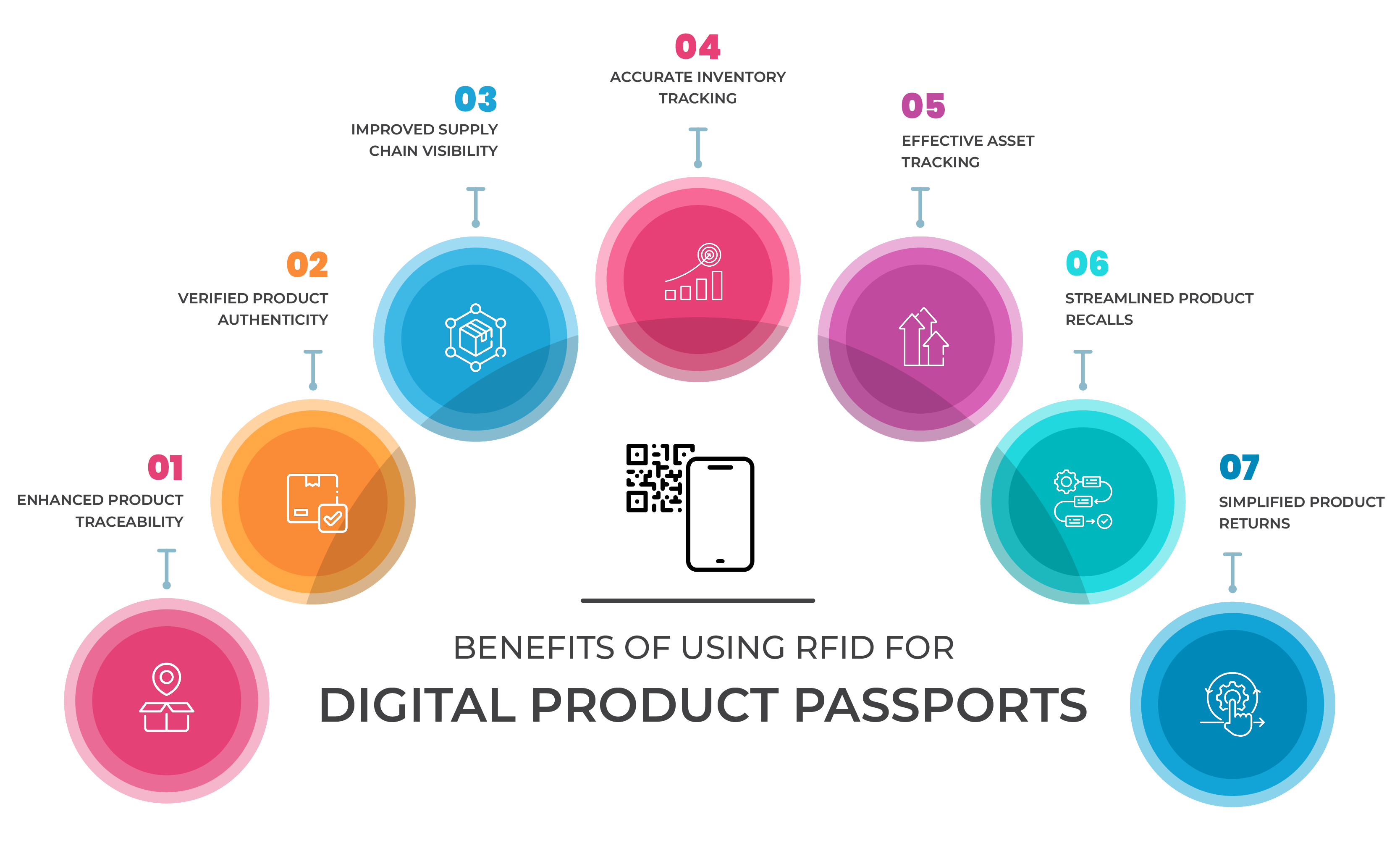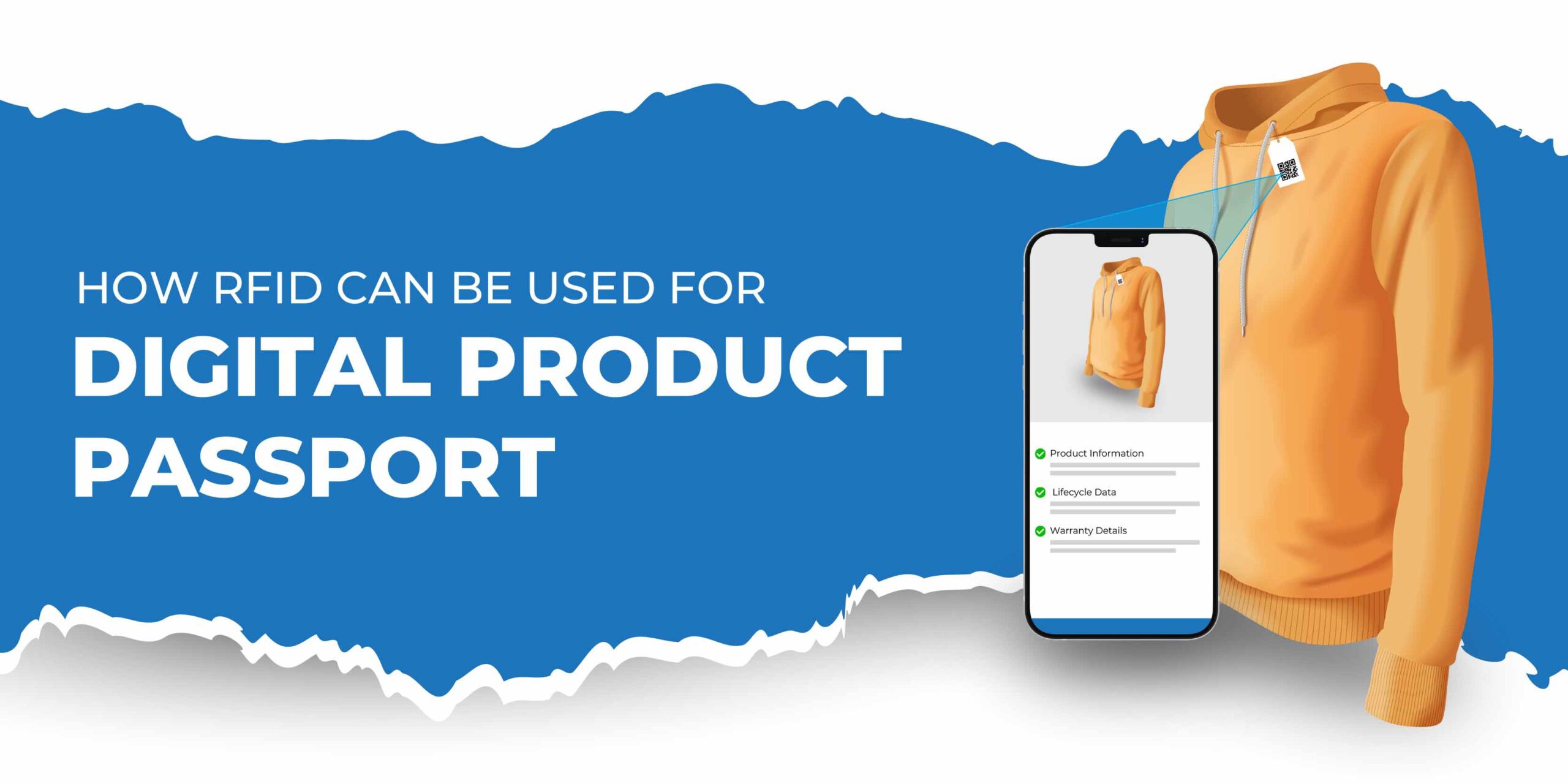In the rapidly evolving digital economy, innovative technologies such as RFID (Radio Frequency Identification) are revolutionizing product management and interaction. A particularly promising application of RFID lies in Digital Product Passports (DPPs). This article delves into how RFID technology can be effectively integrated with DPPs to improve product management, traceability, and overall operational efficiency.
What is a Digital Product Passport and Its Purpose?

A Digital Product Passport (DPP) is a digital document that contains detailed information about a product’s lifecycle, from manufacturing to disposal. It serves as a digital twin of a physical product, containing critical data such as origin, composition, maintenance history, and recycling instructions. The primary purpose of a DPP is to enhance transparency, traceability, and accountability throughout the product’s journey by providing a comprehensive digital record. It aims to streamline information flow across the supply chain, ensuring that every stakeholder has access to accurate and up-to-date information.
Key Components of a DPP
Unique Identifier: A unique code that differentiates each product.
Product Information: Detailed specifications, including materials and manufacturing processes.
Lifecycle Data: Information on production, transportation, usage, and end-of-life disposal.
Ownership and Warranty Details: Information on current ownership, warranty status, and service history.
Understanding RFID Technology
RFID technology uses electromagnetic fields to automatically identify and track RFID tags attached to objects, serving as a powerful tool for data capture and asset tracking across various industries. RFID systems consist of three main components: tags, readers, and a backend system. The RFID reader emits radio waves that the RFID tag picks up, then transmits the stored data back to the RFID reader, which sends it to the backend system (RFID Software) for processing.
Common Applications of RFID in Various Industries
RFID technology is widely used in industries such as retail, healthcare, logistics, and manufacturing. It helps in inventory tracking, asset tracking, access control, and enhancing supply chain transparency.
The Role of RFID Technology in Digital Product Passports
Integrating RFID technology with Digital Product Passports can significantly improve the accuracy and accessibility of product information throughout its lifecycle. RFID tags can be embedded in products, linking them directly to their Digital Product Passports, allowing for seamless data capture and sharing across different stages of the product’s lifecycle.
Real-World Examples of RFID-enabled DPPs
Several industries are already leveraging RFID-enabled DPPs to enhance their operations.
Automotive Industry: In the automotive industry, RFID tags are used to track parts and components, ensuring compliance with safety regulations and improving recall efficiency.
Retail Sector: In retail, RFID-enabled DPPs help track inventory and prevent counterfeit products.
Healthcare Sector: The healthcare sector utilizes RFID-enabled DPPs for tracking medical devices and ensuring proper sterilization and maintenance.
Fashion Industry: In the fashion industry, RFID tags streamline supply chain management and provide authenticity verification for luxury goods.
Benefits of Using RFID for Digital Product Passports
Integrating RFID technology with Digital Product Passports offers numerous advantages, making it an indispensable tool for modern businesses.

1. Enhanced Product Traceability and Authenticity
RFID tags provide a tamper-proof way to track products, ensuring their authenticity and reducing the risk of counterfeit goods. This traceability helps maintain brand integrity and consumer trust.
2. Improved Supply Chain Transparency
RFID-enabled DPPs provide real-time visibility into the supply chain, allowing businesses to monitor the movement and status of products. This transparency helps identify inefficiencies and optimize supply chain operations.
3. Better Inventory and Asset Tracking
RFID technology accurately tracks inventory levels, reducing stockouts and overstock situations. It also helps manage assets more efficiently by providing detailed information on their location and status.
4. Increased Efficiency in Product Recalls and Returns
With RFID-enabled DPPs, businesses can quickly identify and isolate defective products, streamlining the recall process. This efficiency reduces the time and cost associated with recalls and minimizes the impact on consumers.
Conclusion
Integrating RFID technology with Digital Product Passports enhances product management, traceability, and operational efficiency. Organizations ensure accurate information throughout the lifecycle by embedding RFID tags in products and linking them to digital records. This improves supply chain transparency, accountability, and sustainability. As industries embrace digital transformation, RFID- enabled DPPs drive innovation and efficiency across sectors, paving the way for a connected future.
